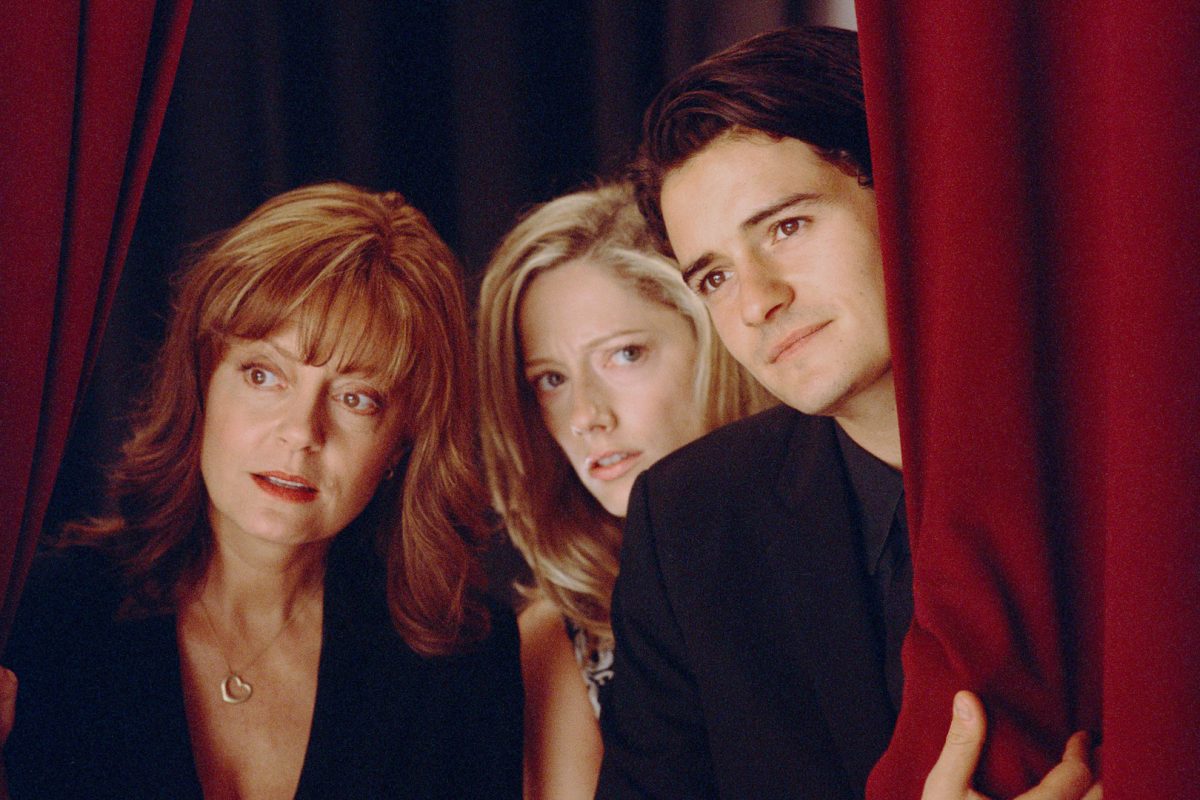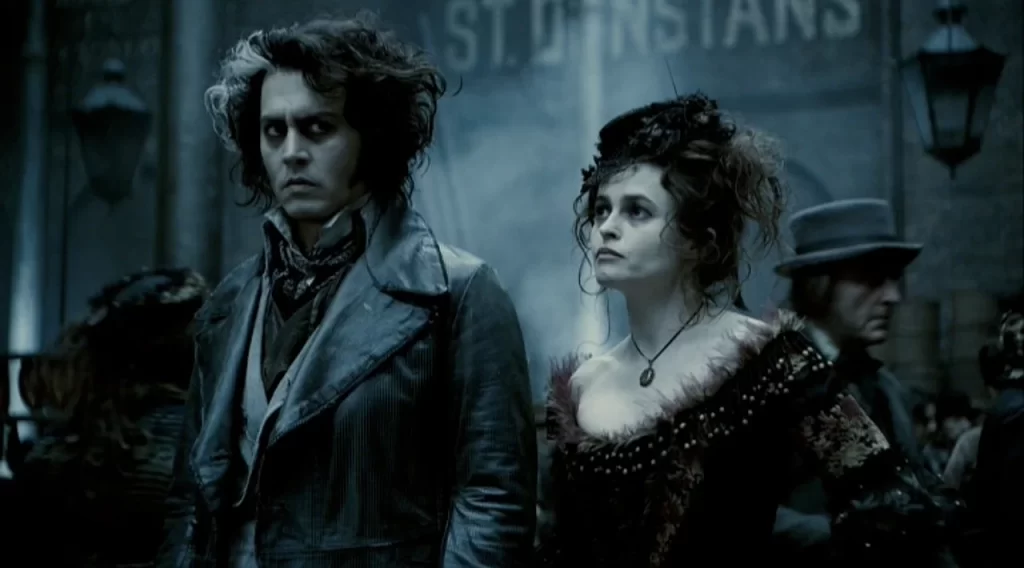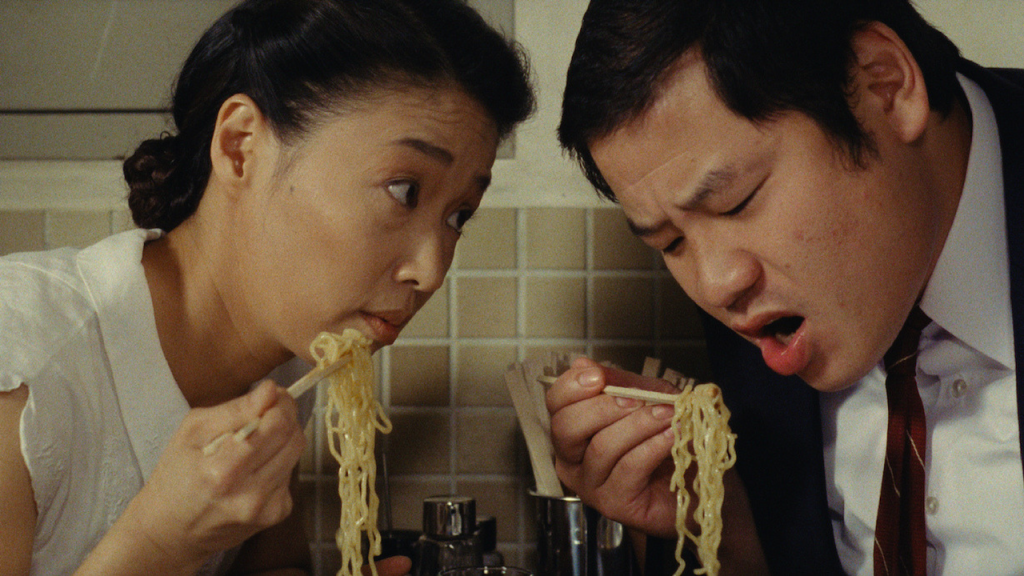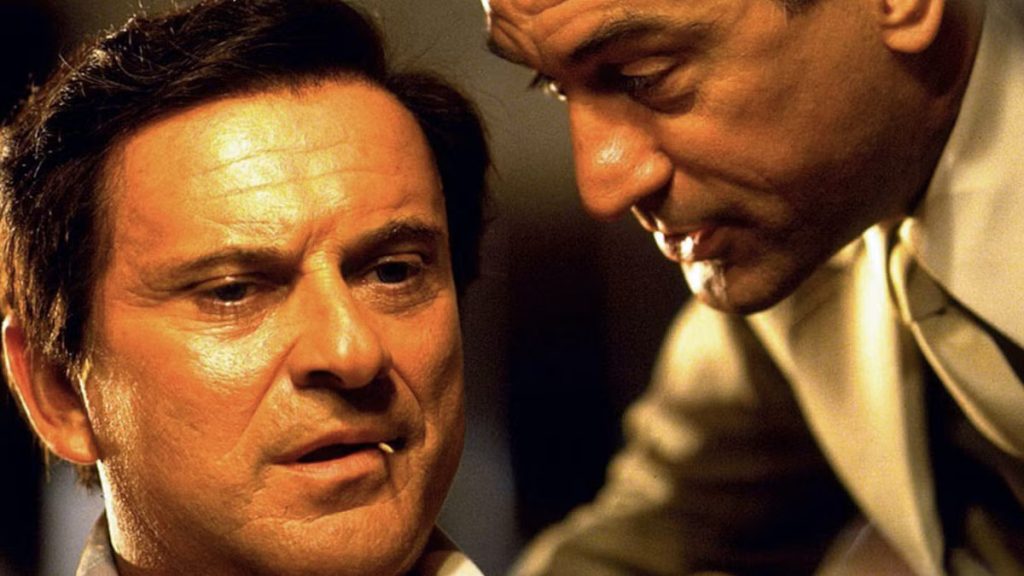“We don’t really know who he is. Orlando [Bloom] is a clean slate,” writer/director Cameron Crowe told GQ of his Elizabethtown leading man. It may be difficult to recall a time two decades ago when the British actor’s career was only just beginning to … well, bloom. At the dawn of the 21st century, he rode Hollywood’s burgeoning franchise obsession to recognition by appearing in two series based on unexpected intellectual property.
Starting in 2001, his role as Elvish archer Legolas in Peter Jackson’s adaptation of The Lord of the Rings novels put him on the map in a critical and box office sensation. He followed up that initial recognition in 2003 with a three-time Teen Choice-winning turn as swordsman Will Turner in the Pirates of the Caribbean films. Having both the beauty to woo the most attractive woman in the world and the brawn to defeat Brad Pitt’s Achilles in 2004’s Troy helped solidify Orlando Bloom’s seemingly inevitable trajectory toward the A-list.
2005 arrived freighted with expectations for the rising star. Glossy cover stories at the time provide a fascinating window into the town’s thinking at the time. Rolling Stone dubbed him “Hollywood’s #1 Pretty Boy,” while GQ declared him “the Errol Flynn of our time.” After serving as a dutiful ensemble player in big-budget studio fare, it was finally time for Orlando Bloom to occupy the center of the frame in a pair of releases designed to establish him as a bankable entity.
The year got off to a rocky start with Kingdom of Heaven, a Crusades-set Medieval epic from Ridley Scott. 20th Century Fox slotted it for release in the coveted first weekend of May, the summer kickoff now primarily reserved as a launchpad for Marvel fare – but which had also launched Scott’s successful sword-and-sandals drama Gladiator five years prior. Yet Kingdom couldn’t even crack $50 million domestically, although Bloom avoided too much accountability for the flop. His taciturn crusader at least felt well within the actor’s wheelhouse of strong, silent types from centuries prior.
It was Elizabethtown, a rom-com-dram from Oscar-winning filmmaker Crowe, that proved the bigger test of whether his presence alone could sell a movie. Paramount, too, positioned the film for success – albeit in the awards arena. The studio set high-profile premieres on the festival circuit in Venice and Toronto, with a wide theatrical release in the prime October corridor to follow. And it’s on this battleground where Bloom became no longer a clean slate but a blank one.
Crowe’s unabashed sincerity in telling a story ripped from the grief of losing his own father took a lot of arrows upon release, a time during Bush’s second term when embittered irony was a prevailing sentiment. But Crowe comes by it so earnestly that he can sell some of the more far-fetched character choices and plotting turns. Meanwhile, the film’s enduring legacy to date has been inspiring Nathan Rabin to coin the phrase “Manic Pixie Dream Girl” as a description for Kirsten Dunst’s impossible romantic interest whose only purpose seems to be goading a male lead toward his destiny. (It’s a term which he later apologized for introducing into the lexicon.)
With two decades of distance from Elizabethtown, it’s now pretty clear Bloom is the key element holding the film back. He’s a vacuum of charisma as protagonist Drew Baylor, a young man adrift in professional and familial fiascos. In his first major contemporary-set role, the actor feels out of place without a weapon or shield to hide behind. His character feels like a progenitor of the Apatovian lovable millennial slacker trapped in prolonged adolescence. He dodged the worst wrath because, at this moment, the archetype was not yet a lightning rod for criticism.
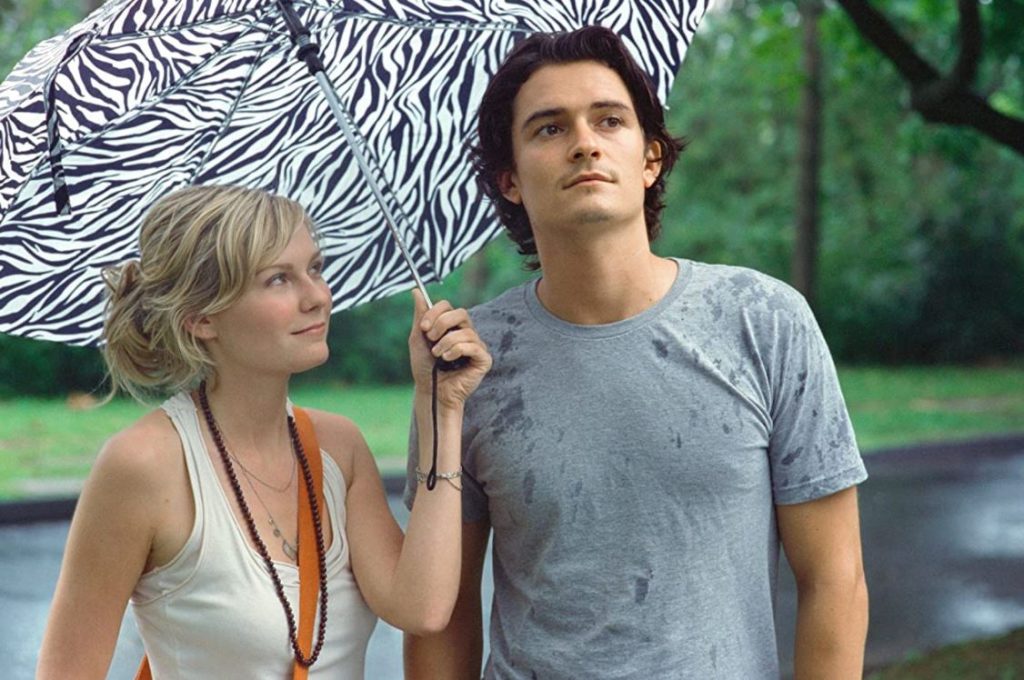
It doesn’t help matters that Crowe writes Drew in such a way that the film has to build toward the stoic yuppie finally being willing to cry. Charting that path strategically across the journey requires an intense emotional modulation that was just not in Bloom’s thespian toolkit at the time. His acting in close-up feels robotic, as if we can see the gears shifting as he switches between the factory settings of Drew’s feelings. (Or, perhaps likelier, it’s as if he’s running through different poses as if being shot for a magazine cover.) Crowe almost seems aware of his leading man’s limitations, frequently supercharging moments in Elizabethtown that the actor can’t carry with his performance by cranking up the volume on a classic rock track to 11.
In that aforementioned GQ profile of Bloom, Crowe paraphrases a quote from Warren Beatty about the nature of casting stars: “75 percent of what people bring to a movie is their perception of the actor.” In 2005, no one had enough associations with Bloom to make Elizabethtown work as a star text. A key dissonance that reverberates throughout is Bloom’s acting with an ironic distance (in an utterly sincere work, no less) from a hotshot persona derived from the stolen valor of beloved IP. His inability to sublimate that image into the character, like Tom Cruise did to Oscar-nominated effect in Crowe’s Jerry Maguire, played a large part in the wholesale rejection of Elizabethtown.
In a town famous for learning the wrong lessons, the unheeded warning of Orlando Bloom’s failure to take off as a star now feels like a particularly onerous canary in the coal mine. “Every good young actor vacuumed up by a superhero franchise or a megahit movie series costs us a fresh star persona,” wrote Wesley Morris in 2016, and the data backs him up. With rare exception, the top theatrical stars (as measured by NRG) are still actors who got their start in a 20th-century industry structured around building up people rather than products. Bloom is but the first in a conveyor belt of fresh-faced would-be leading men that moviegoers rejected outside of capes or CGI-filled environments.
A few upstart performers – Michael B. Jordan, Timothée Chalamet, Glen Powell – stand waiting in the wings to reverse this trend by studying the graying giants of their craft. To his credit, Bloom is still in the ring both proverbially and literally; just this fall, he starred in indie boxing drama The Cut. But rather than contending for the championship, his character’s struggle is simply to drop enough weight to be able to even compete in the first place.
As a generation of tabloid-hyped figures such as Bloom, Chris Hemsworth, and Zac Efron enter middle age, they’ve at least found one lane for themselves: the influencer economy. On Instagram, they’re hocking brands rather than being them. On streaming services, they’re leveraging their names for docuseries devoted to the self-actualization they struggled to convince audiences to pay them to play.
Orlando Bloom: To the Edge, a three-part docuseries on Peacock, makes for a particularly fascinating star text. Bloom challenges himself to push outside of his comfort zone in a series of daredevilish feats of physical and mental might. “I’m not the superhero I am in my brain,” the mid-forties man confesses at one point after bumping up against the limitations of his body. It’s unexpectedly moving to watch him translate the emotion welling up inside into a corporeal achievement.
At last, Bloom has found the synchronicity that eluded him at the start of his career. But it’s a sign of the changing times that he’s a better salesman of this narrative in a docuseries than he is in a metafictional work. In To the Edge, he’s finally succeeding at playing the role that so few were interested in seeing Bloom play: himself.
“Elizabethtown” is streaming on Kanopy and Hoopla.
